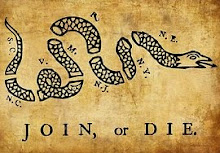- "The President shall be Commander in Chief of the Army and Navy of the United States, and of the Militia of the several States, when called into the actual Service of the United States…"
- "…and he shall have Power to Grant Reprieves and Pardons for Offenses against the United States, except in Cases of Impeachment."
- "…He shall have Power, by and with the Advice and Consent of the Senate, to make Treaties, provided two thirds of the Senators present concur; and he shall nominate, and by and with the Advice and Consent of the Senate, shall appoint Ambassadors, other public Ministers and Consuls, Judges of the supreme Court, and all other Officers of the United States, whose Appointments are not herein otherwise provided for, and which shall be established by Law..."
- "The President shall have Power to fill up all Vacancies that may happen during the Recess of the Senate, by granting Commissions which shall expire at the End of their next Session."
- "He shall from time to time give to the Congress Information of the State of the Union, and recommend to their Consideration such Measures as he shall judge necessary and expedient; he may, on extraordinary Occasions, convene both Houses, or either of them, and in Case of Disagreement between them, with Respect to the Time of Adjournment, he may adjourn them to such Time as he shall think proper; he shall receive Ambassadors and other public Ministers; he shall take Care that the Laws be faithfully executed, and shall Commission all the Officers of the United States."
- "The President, Vice President and all civil Officers of the United States, shall be removed from Office on Impeachment for, and Conviction of, Treason, Bribery, or other high Crimes and Misdemeanors."
Power to Legislate
Strange, but there seems to be no power mentioned to legislate in the above description. What's more important is that there are no powers specified for what the President can do under an emergency. It doesn't say anything about loaning money to companies "too big to fail" or being able to make wire taps without court orders. (The latter refers to the Bush administration and the Patriot Act in which Congress DID authorize the President to violate the Constitution). It also does not mention regulating the salaries of CEOs of ANY companies.
Presidential Prerogative
So there are really no Constitutional laws giving permission to the President for seizure of private property. But isn't that what happened this year in the United States? Didn't the Federal government loan money and take-over privately held banks, mortgage companies and automobile manufacturers?
Has this ever happened before? Yes, under the Presidency of Harry S. Truman. On March 20, 1952 there was a work stoppage in the steel industry and President Truman ordered the Secretary of Commerce to seize and operate the steel mills for the Federal government. Truman explained his behavior justifying the seizure through an appeal to the Constitution and laws of the US and his powers as President and Commander of the Armed Forces (who were at war in Korea).
In June, 1952, the Supreme Court made a 6-3 decision regarding this seizure of the steel mills. Essentially, the President was to enforce the law, not to legislate and his acts amounted to a legislative act. The court made no specific decision regarding any powers "alleged inherent or emergency" powers.
Has Obama gone too far? Yes. Someone needs to legally challenge his actions regarding these government takeovers. Will it happen? With the present spineless Congress it's rather doubtful. So kiss your freedoms goodbye America. We are moving towards a tyrannical government.

No comments:
Post a Comment